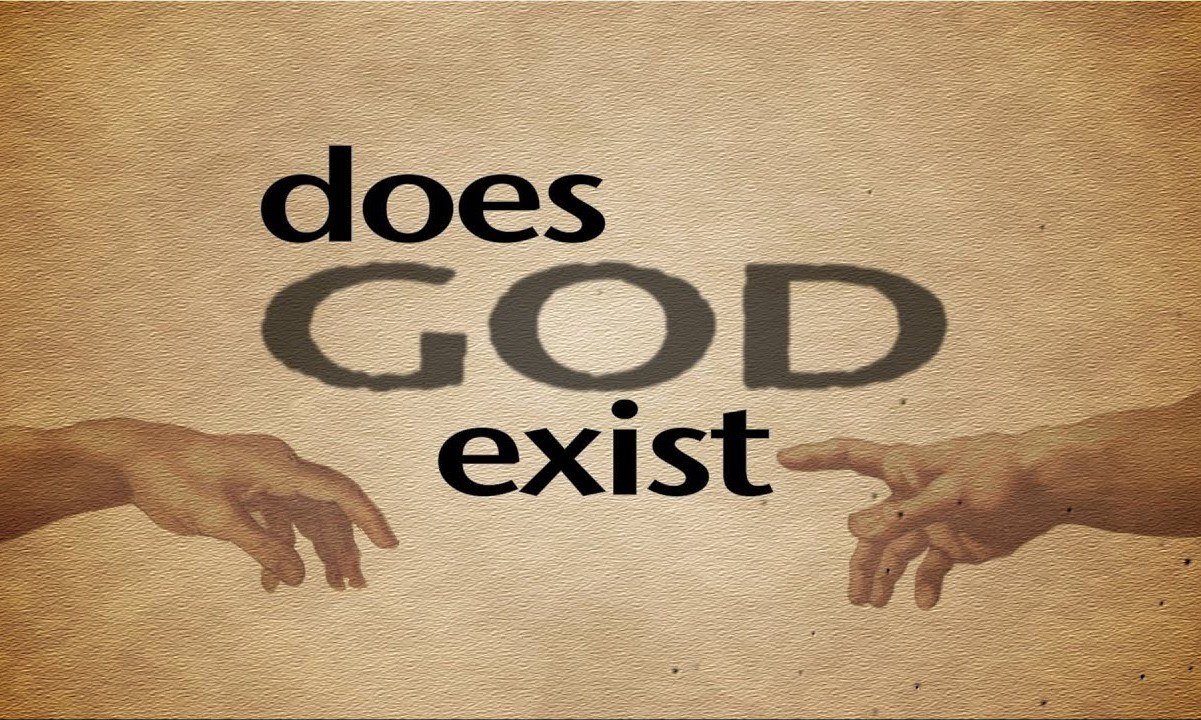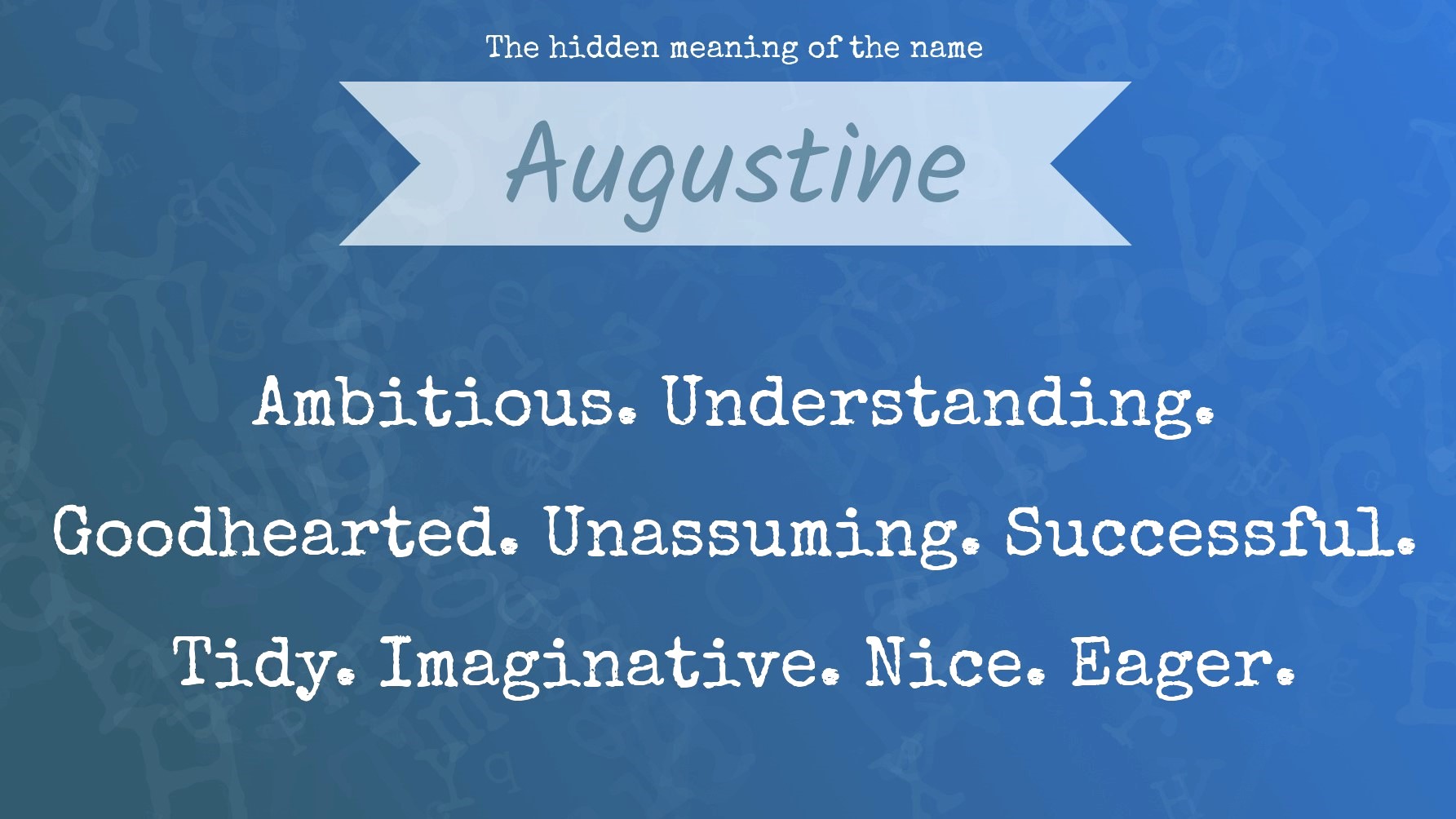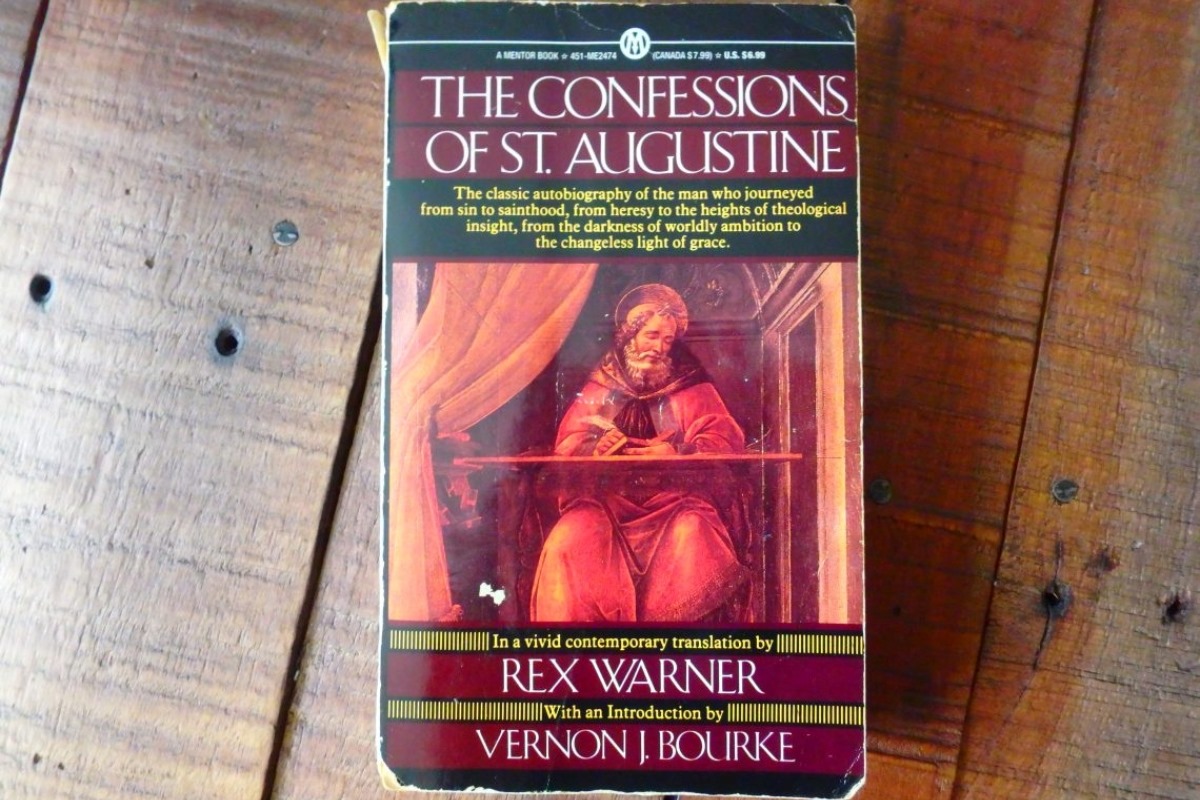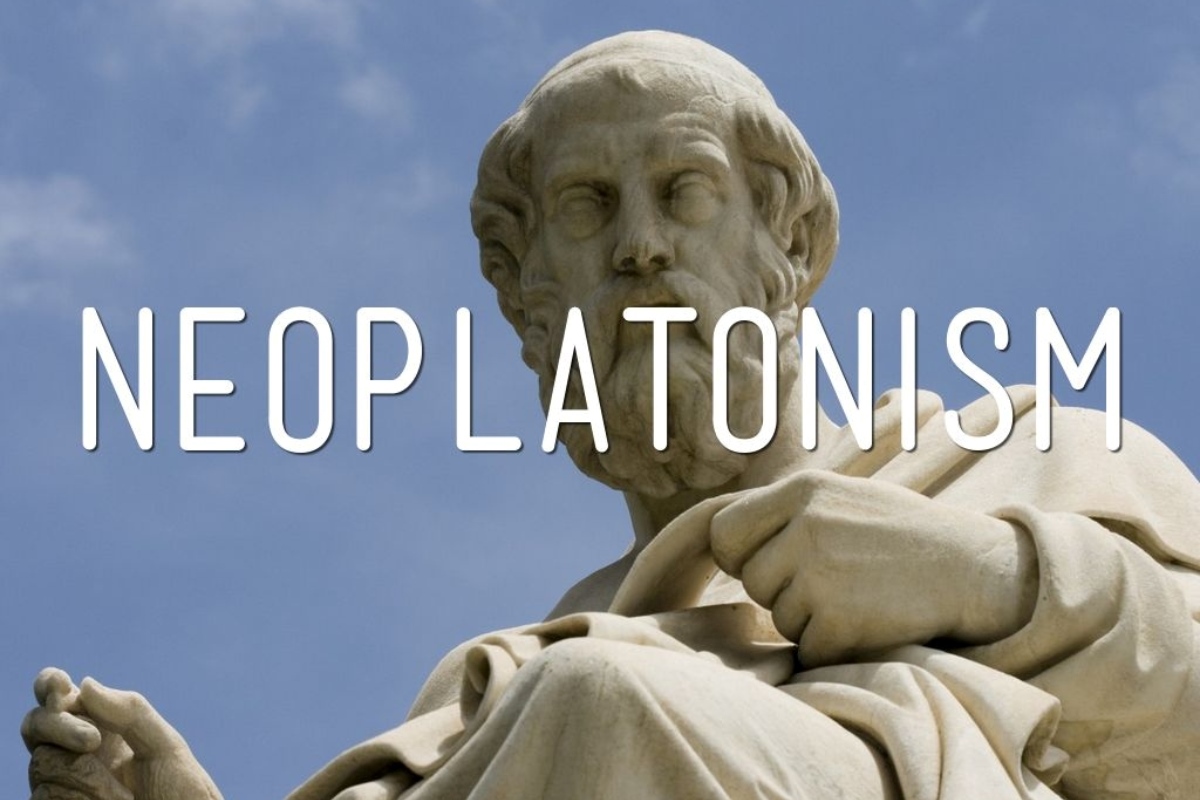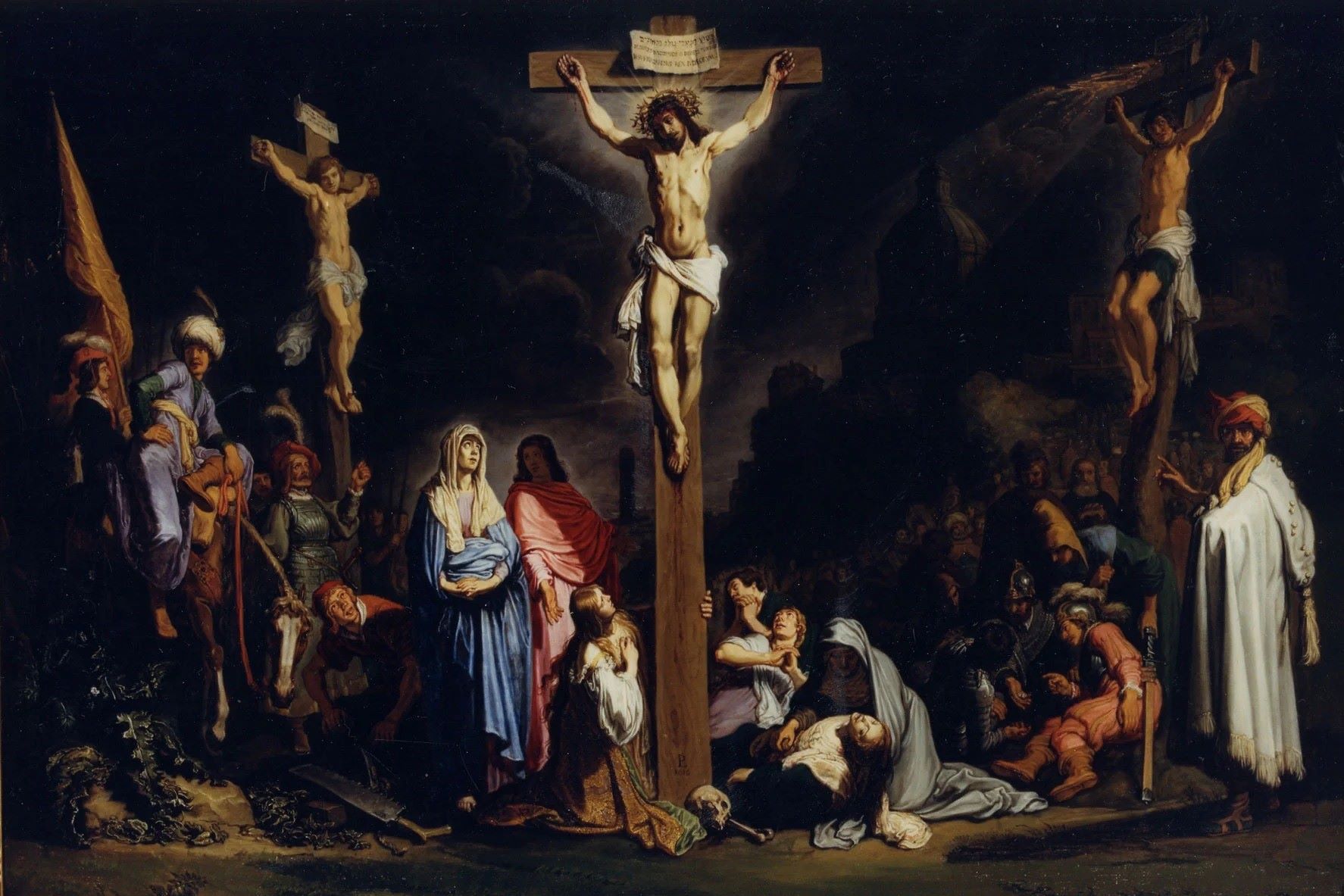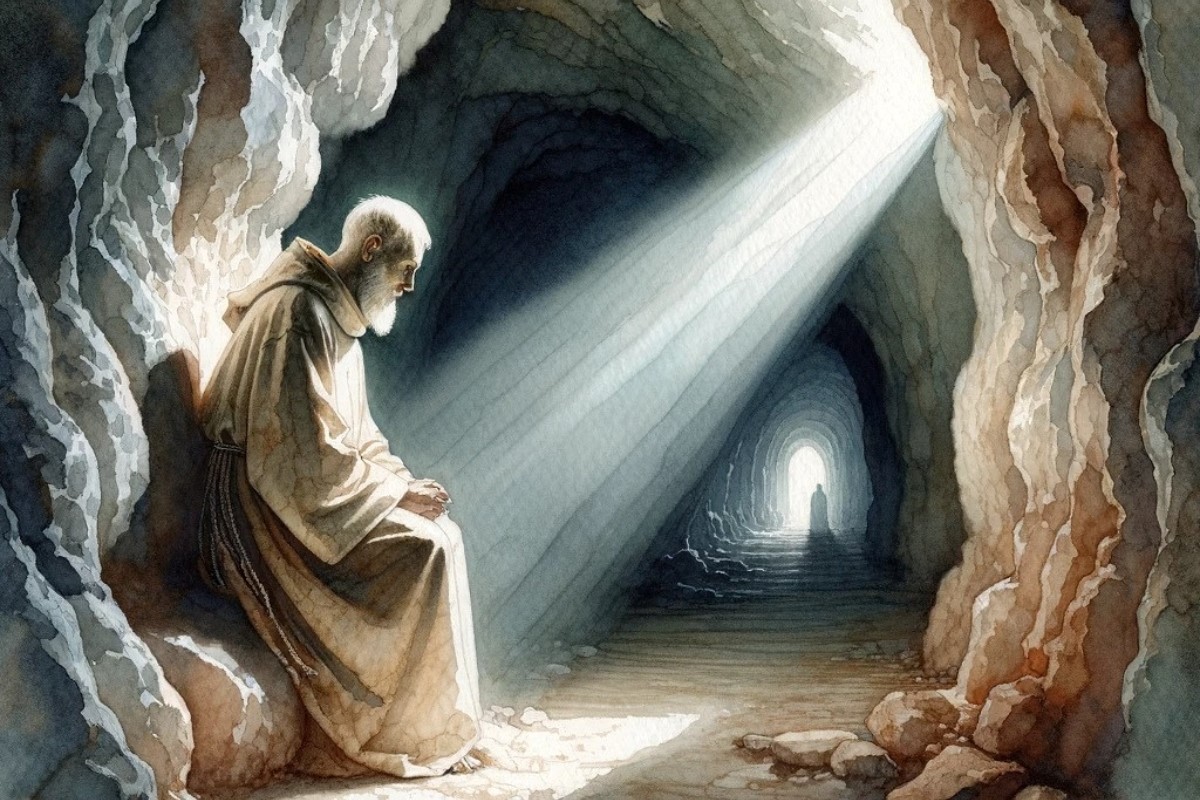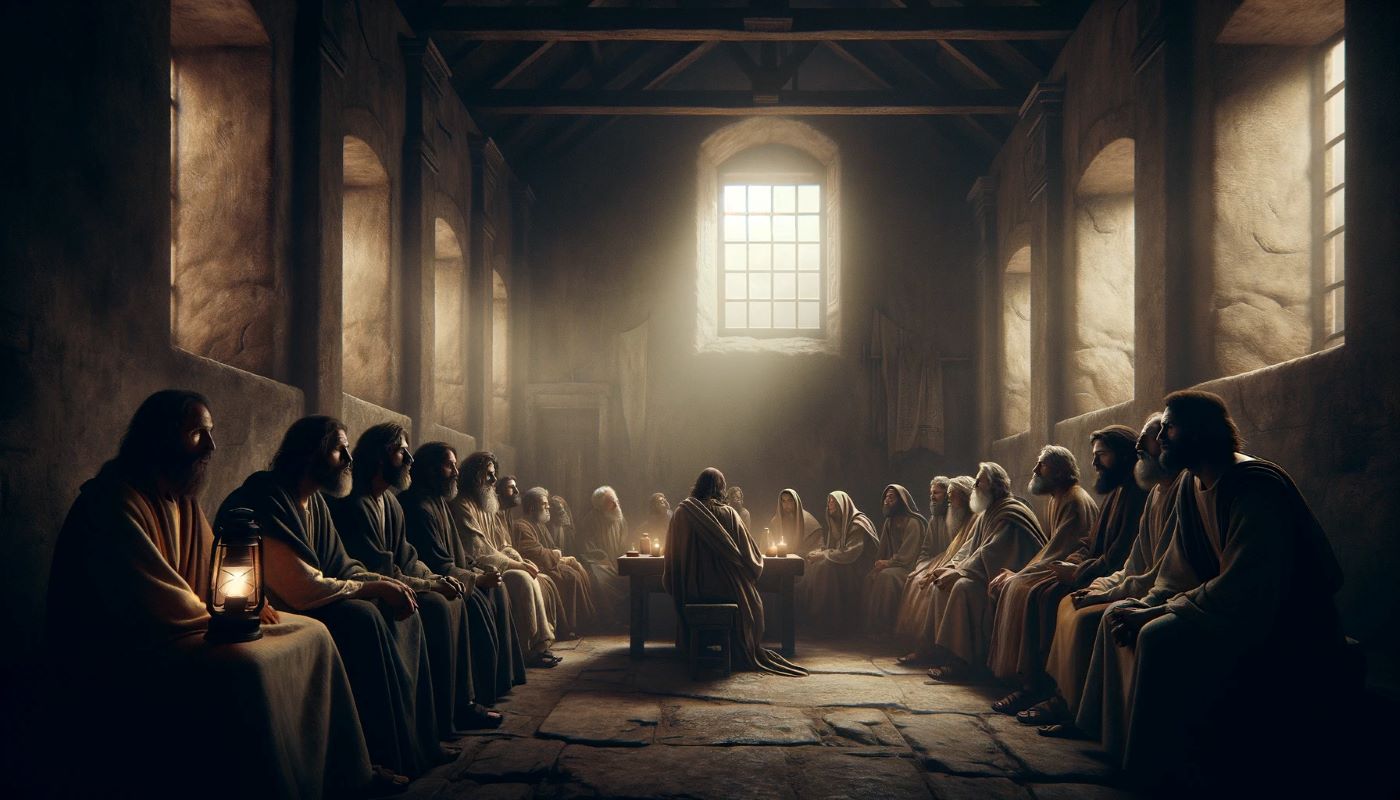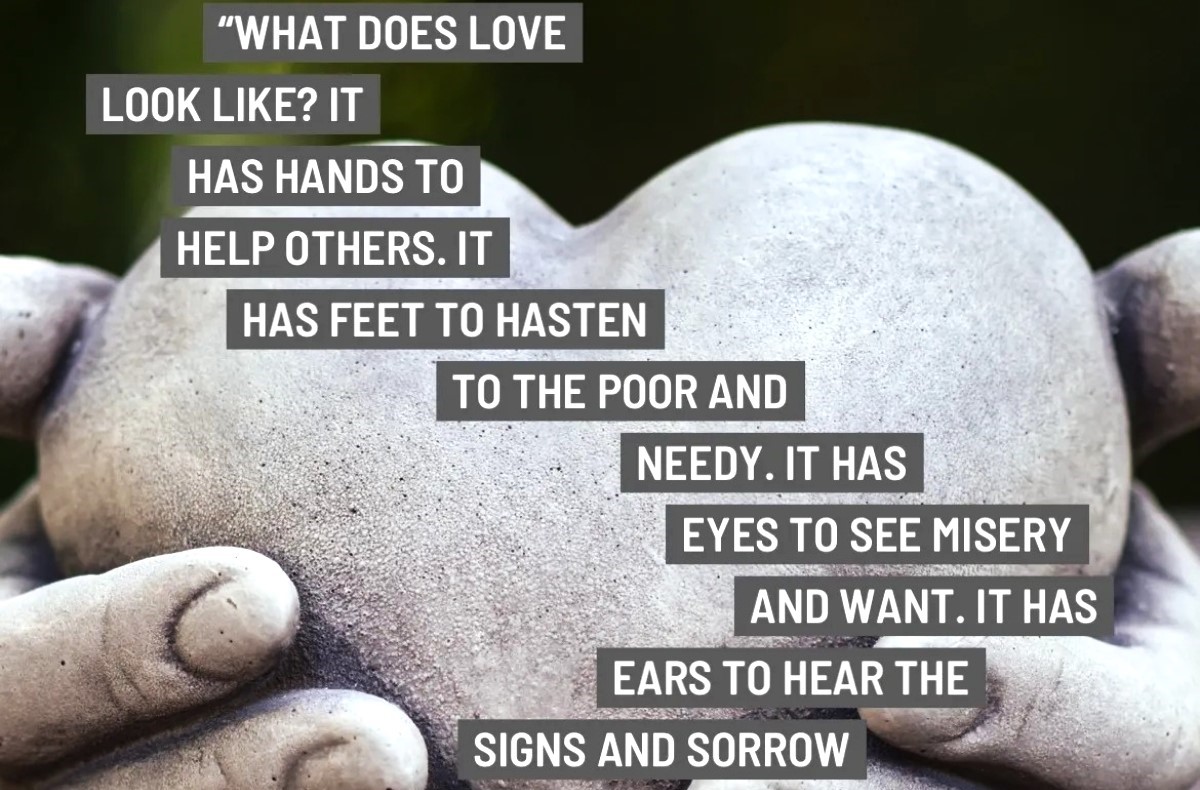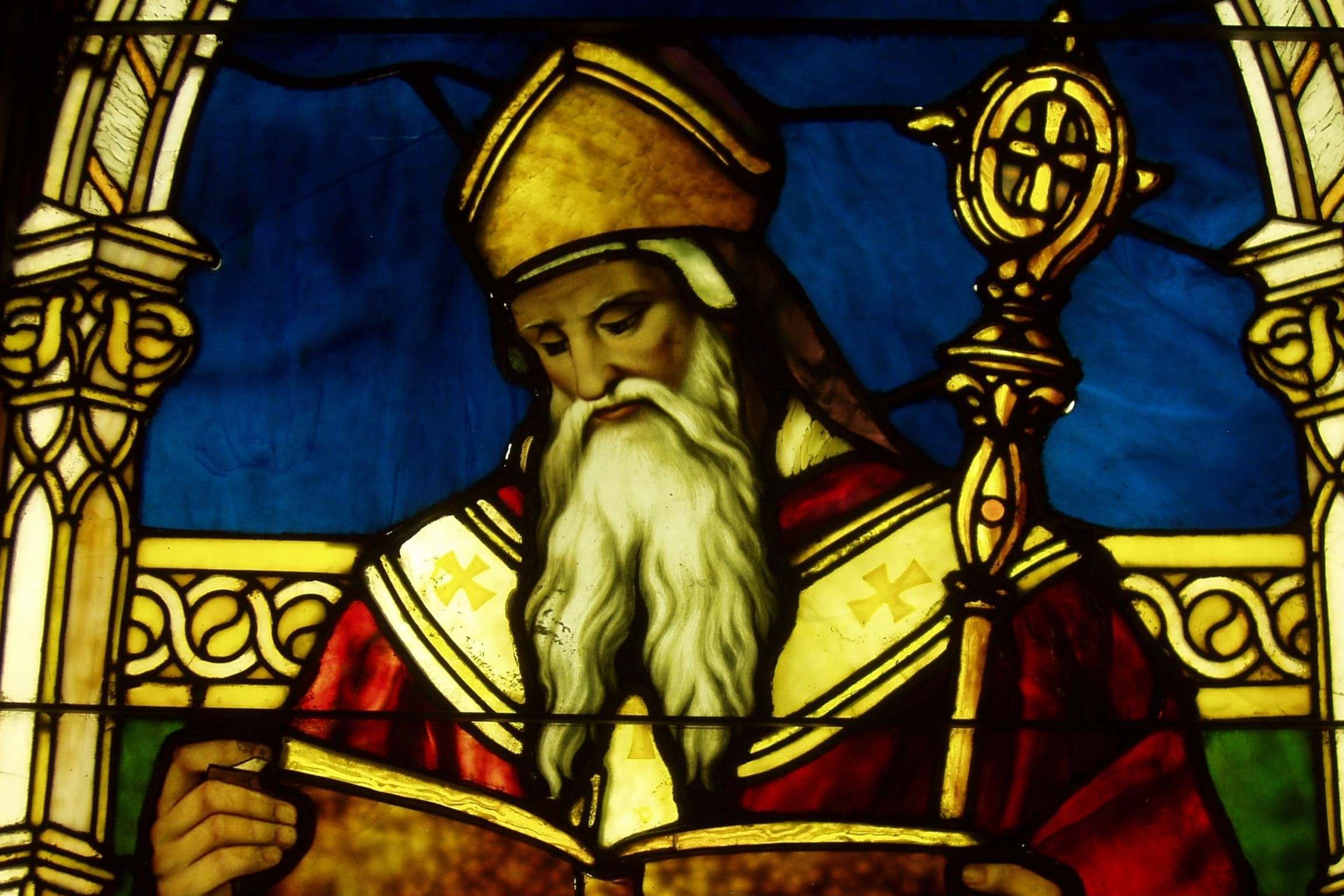Home>Theology and Spirituality>How Does Augustine Define Sin


Theology and Spirituality
How Does Augustine Define Sin
Published: February 10, 2024
Jason DeRose, Managing Editor at Christian.net, uses his expertise in religion and journalism to deepen understanding of faith's societal impacts. His editorial leadership, coupled with a strong academic background, enriches the platform’s diverse content, earning him recognition in both journalism and religious circles.
Discover Augustine's definition of sin and its implications in theology and spirituality. Explore the profound insights of this influential theologian.
(Many of the links in this article redirect to a specific reviewed product. Your purchase of these products through affiliate links helps to generate commission for Christian.net, at no extra cost. Learn more)
Table of Contents
Introduction
Augustine of Hippo, a towering figure in Christian theology, grappled deeply with the concept of sin. His profound insights continue to influence theological discourse and spiritual reflection to this day. Augustine's exploration of sin was deeply personal, shaped by his own struggles and transformation. Through his seminal works, such as "Confessions" and "The City of God," Augustine delved into the nature of sin, its origins, and its implications for humanity.
In this article, we will embark on a journey to understand Augustine's definition of sin and its profound implications. We will explore Augustine's early understanding of sin, the pivotal moment of his conversion, and how it transformed his perception of sin. We will delve into Augustine's nuanced definition of sin, shedding light on its complexities and implications for human existence. Furthermore, we will examine the consequences of sin as elucidated by Augustine, offering insights that resonate across centuries.
As we navigate Augustine's profound insights, we will gain a deeper understanding of the complexities of human nature, the moral dilemmas that confront individuals, and the profound implications of sin on the human condition. Augustine's exploration of sin transcends the boundaries of time and continues to offer profound wisdom and guidance for those who seek to grapple with the intricacies of human existence and the pursuit of spiritual redemption.
Read more: How Does Augustine Define Evil
Augustine's Early Understanding of Sin
In his formative years, Augustine grappled with the concept of sin in a deeply personal and introspective manner. His early understanding of sin was profoundly influenced by the moral teachings of his mother, Monica, and the prevailing Manichaean beliefs that he encountered. At this stage, sin was perceived as a deviation from the divine will, a transgression that marred the purity of the soul and distanced individuals from God's grace.
Augustine's youthful experiences and moral struggles shaped his perception of sin as a pervasive force that permeated human existence. His introspective nature led him to confront the complexities of human desires and the moral dilemmas that accompanied them. The allure of worldly pleasures and the internal conflicts they engendered became integral to Augustine's early understanding of sin. His introspective nature led him to confront the complexities of human desires and the moral dilemmas that accompanied them. The allure of worldly pleasures and the internal conflicts they engendered became integral to Augustine's early understanding of sin.
Furthermore, Augustine's exposure to Manichaean dualism, with its stark division between the forces of light and darkness, influenced his initial perception of sin as a cosmic struggle between opposing moral forces. This dualistic framework shaped his early understanding of sin as a profound existential dilemma, wherein the human soul grappled with the conflicting impulses of good and evil.
Augustine's early understanding of sin was characterized by a profound sense of moral urgency and existential angst. The pervasive nature of sin, coupled with the internal turmoil it evoked, fueled his quest for spiritual redemption and moral clarity. This formative period laid the groundwork for Augustine's later theological insights, as he grappled with the complexities of human nature and the profound implications of sin on the human condition.
In essence, Augustine's early understanding of sin was marked by a deep sense of moral introspection and existential struggle. His encounters with moral teachings, philosophical doctrines, and personal experiences converged to shape a nuanced and profound perception of sin that would continue to evolve throughout his life. This early exploration of sin laid the foundation for Augustine's transformative journey towards a new understanding of sin, ultimately shaping his enduring legacy as a preeminent theologian and philosopher.
Augustine's Conversion and New Understanding of Sin
Augustine's pivotal moment of conversion marked a profound turning point in his perception of sin. His spiritual journey culminated in a transformative encounter that reshaped his understanding of sin and redemption. The catalyst for this profound shift was his encounter with the renowned bishop, Ambrose of Milan, whose profound wisdom and eloquence captivated Augustine's intellect and stirred his soul.
Under Ambrose's guidance, Augustine underwent a profound intellectual and spiritual metamorphosis. Through intense study and contemplation of sacred scriptures, philosophical treatises, and theological discourses, Augustine experienced a profound awakening that transcended mere intellectual comprehension. His encounter with Ambrose and his immersion in the rich tapestry of Christian thought kindled a spiritual fire within him, illuminating the path to a new understanding of sin and divine grace.
Central to Augustine's new understanding of sin was the recognition of its deeply entrenched nature within the human condition. Sin, he realized, was not merely a series of discrete transgressions but an inherent aspect of human existence, stemming from the primal disobedience of Adam and Eve. Augustine's profound introspection led him to comprehend sin as a pervasive force that permeated the human soul, corrupting its faculties and distorting its orientation towards the divine.
Moreover, Augustine's newfound understanding of sin was intricately intertwined with his evolving perception of divine grace and redemption. Through his encounters with Ambrose and his deep immersion in Christian theology, Augustine came to grasp the profound implications of divine grace as the antidote to the pervasive malady of sin. He recognized that the transformative power of grace, bestowed by a merciful and compassionate God, held the key to spiritual liberation and moral restoration.
In essence, Augustine's conversion engendered a profound paradigm shift in his understanding of sin, illuminating its pervasive nature within the human condition and the transformative potential of divine grace. This transformative journey laid the groundwork for Augustine's seminal theological insights, shaping his enduring legacy as a preeminent theologian and philosopher whose profound understanding of sin continues to resonate across centuries.
Augustine's Definition of Sin
Augustine's profound exploration of sin culminated in a nuanced and comprehensive definition that continues to resonate across theological and philosophical discourse. Central to Augustine's definition of sin is the concept of "privatio boni," which translates to the "privation of the good." According to Augustine, sin is not a substance or an entity in itself but rather an absence or distortion of the inherent goodness intended by the Creator. This foundational understanding of sin as a privation of the good underpins Augustine's theological framework, shedding light on the complexities of human moral agency and the pervasive nature of sin within the human condition.
Furthermore, Augustine delineated sin as a deviation from the divine order and a distortion of the human will. He emphasized the inherent goodness of creation and the divine intention for human flourishing, positing that sin disrupts this harmonious order and distorts the moral fabric of existence. Augustine's definition of sin transcends mere moral transgressions, encompassing a profound existential dimension wherein the human soul is estranged from its intended communion with the divine.
Moreover, Augustine's definition of sin extends beyond individual actions, encompassing the broader implications of inherited guilt and the collective moral inheritance of humanity. He expounded on the concept of original sin, tracing its roots to the primal disobedience of Adam and Eve and its enduring impact on subsequent generations. Augustine's elucidation of original sin underscores the pervasive nature of human fallenness and the profound implications for the human condition, underscoring the pervasive influence of sin across temporal and spatial boundaries.
In essence, Augustine's definition of sin encapsulates a multifaceted understanding that transcends simplistic moral categorizations. It delves into the existential, moral, and theological dimensions of sin, shedding light on its pervasive influence on human existence and the profound implications for the human quest for redemption and moral restoration. Augustine's definition of sin continues to inspire profound reflection and theological inquiry, offering timeless insights into the complexities of human nature and the enduring struggle against the pervasive forces of sin.
The Consequences of Sin According to Augustine
Augustine's profound insights into the consequences of sin offer a compelling framework for understanding the far-reaching implications of human moral frailty and the pervasive influence of sin on the human condition. Central to Augustine's theological discourse is the recognition of sin as a profound disruption of the divine order, engendering a myriad of consequences that reverberate across individual lives and the broader tapestry of human existence.
At the heart of Augustine's exploration of the consequences of sin lies the concept of moral disorder and spiritual estrangement. Sin, he posits, distorts the inherent goodness of creation and disrupts the harmonious relationship between humanity and the divine. This disruption manifests in the form of spiritual alienation, wherein the human soul is estranged from its intended communion with God. Augustine's profound insights into the consequences of sin offer a compelling framework for understanding the far-reaching implications of human moral frailty and the pervasive influence of sin on the human condition. Central to Augustine's theological discourse is the recognition of sin as a profound disruption of the divine order, engendering a myriad of consequences that reverberate across individual lives and the broader tapestry of human existence.
Furthermore, Augustine expounds on the moral and existential ramifications of sin, elucidating its corrosive impact on human faculties and the broader social fabric. Sin, he contends, distorts the human will, leading to moral confusion and ethical disarray. The consequences of sin permeate the individual and collective human experience, giving rise to discord, injustice, and societal upheaval. Augustine's profound insights into the consequences of sin offer a compelling framework for understanding the far-reaching implications of human moral frailty and the pervasive influence of sin on the human condition. Central to Augustine's theological discourse is the recognition of sin as a profound disruption of the divine order, engendering a myriad of consequences that reverberate across individual lives and the broader tapestry of human existence.
Moreover, Augustine's exploration of the consequences of sin extends to the existential and eschatological realms, illuminating the enduring implications of sin beyond temporal existence. Sin, he posits, engenders spiritual malaise and eternal separation from the divine, underscoring the profound stakes of human moral agency. Augustine's profound insights into the consequences of sin offer a compelling framework for understanding the far-reaching implications of human moral frailty and the pervasive influence of sin on the human condition. Central to Augustine's theological discourse is the recognition of sin as a profound disruption of the divine order, engendering a myriad of consequences that reverberate across individual lives and the broader tapestry of human existence.
In essence, Augustine's elucidation of the consequences of sin offers a profound and comprehensive understanding of the enduring ramifications of human moral frailty and the pervasive influence of sin on the human condition. His insights resonate across theological and philosophical discourse, offering timeless wisdom on the complexities of human existence and the enduring struggle against the pervasive forces of sin.
Conclusion
In conclusion, Augustine's profound exploration of sin transcends mere moral categorizations, delving into the existential, moral, and theological dimensions of human frailty and the enduring struggle against the pervasive forces of sin. His early understanding of sin, shaped by his personal struggles and encounters with moral teachings, laid the groundwork for a transformative journey towards a new understanding of sin. Augustine's pivotal conversion marked a profound paradigm shift, illuminating the pervasive nature of sin within the human condition and the transformative potential of divine grace.
Central to Augustine's definition of sin is the concept of "privatio boni," wherein sin is perceived as a privation of the good, disrupting the harmonious order intended by the Creator. This nuanced understanding sheds light on the complexities of human moral agency and the pervasive nature of sin within the human condition. Furthermore, Augustine's exploration of the consequences of sin offers a compelling framework for understanding the far-reaching implications of human moral frailty and the disruptive influence of sin on individual lives and the broader tapestry of human existence.
Augustine's insights into the consequences of sin extend beyond temporal existence, illuminating the enduring implications of sin in the existential and eschatological realms. Sin, he posits, engenders spiritual malaise and eternal separation from the divine, underscoring the profound stakes of human moral agency. His profound insights continue to inspire profound reflection and theological inquiry, offering timeless wisdom on the complexities of human existence and the enduring struggle against the pervasive forces of sin.
In essence, Augustine's exploration of sin offers a profound and comprehensive understanding of the enduring ramifications of human moral frailty and the transformative potential of divine grace. His insights continue to resonate across theological and philosophical discourse, offering timeless wisdom on the complexities of human existence and the enduring struggle against the pervasive forces of sin. Augustine's enduring legacy as a preeminent theologian and philosopher is indelibly intertwined with his profound understanding of sin, offering guidance and wisdom for those who seek to grapple with the intricacies of human nature and the pursuit of spiritual redemption.
